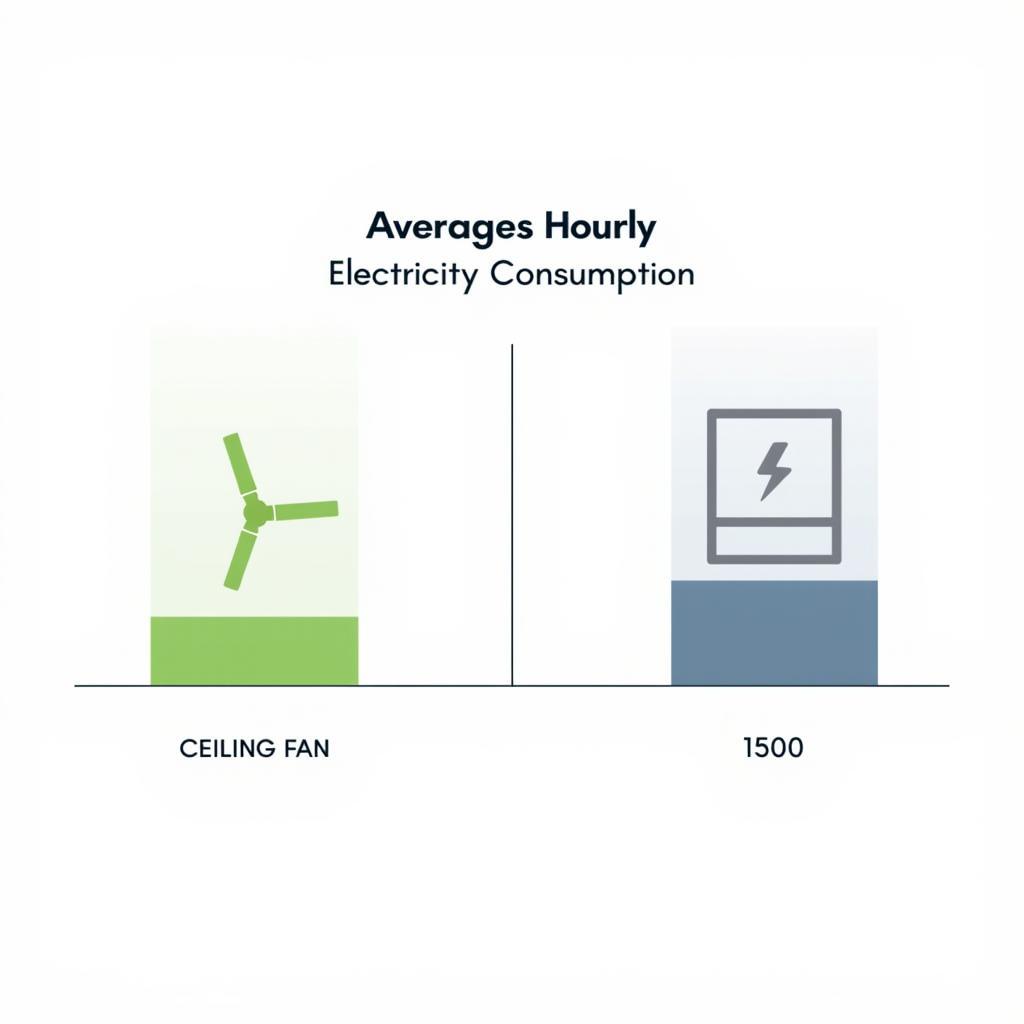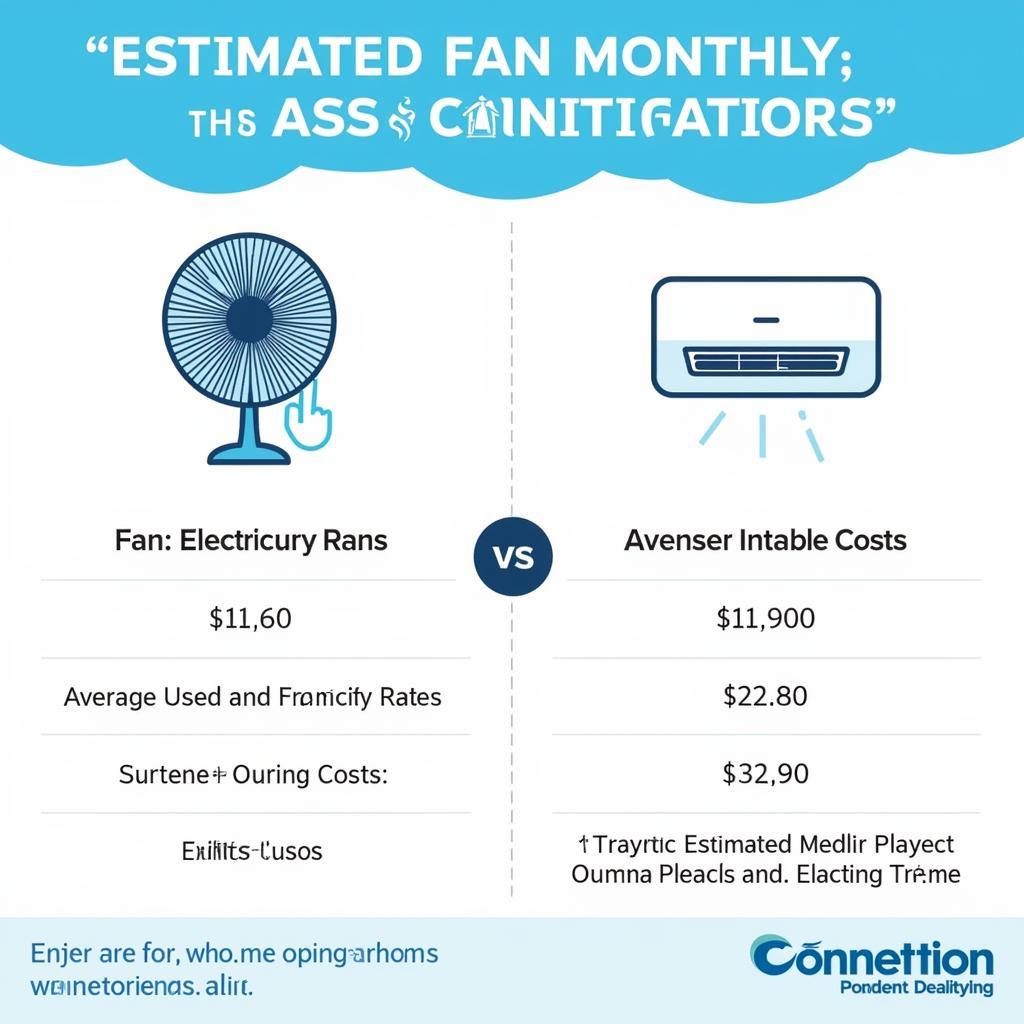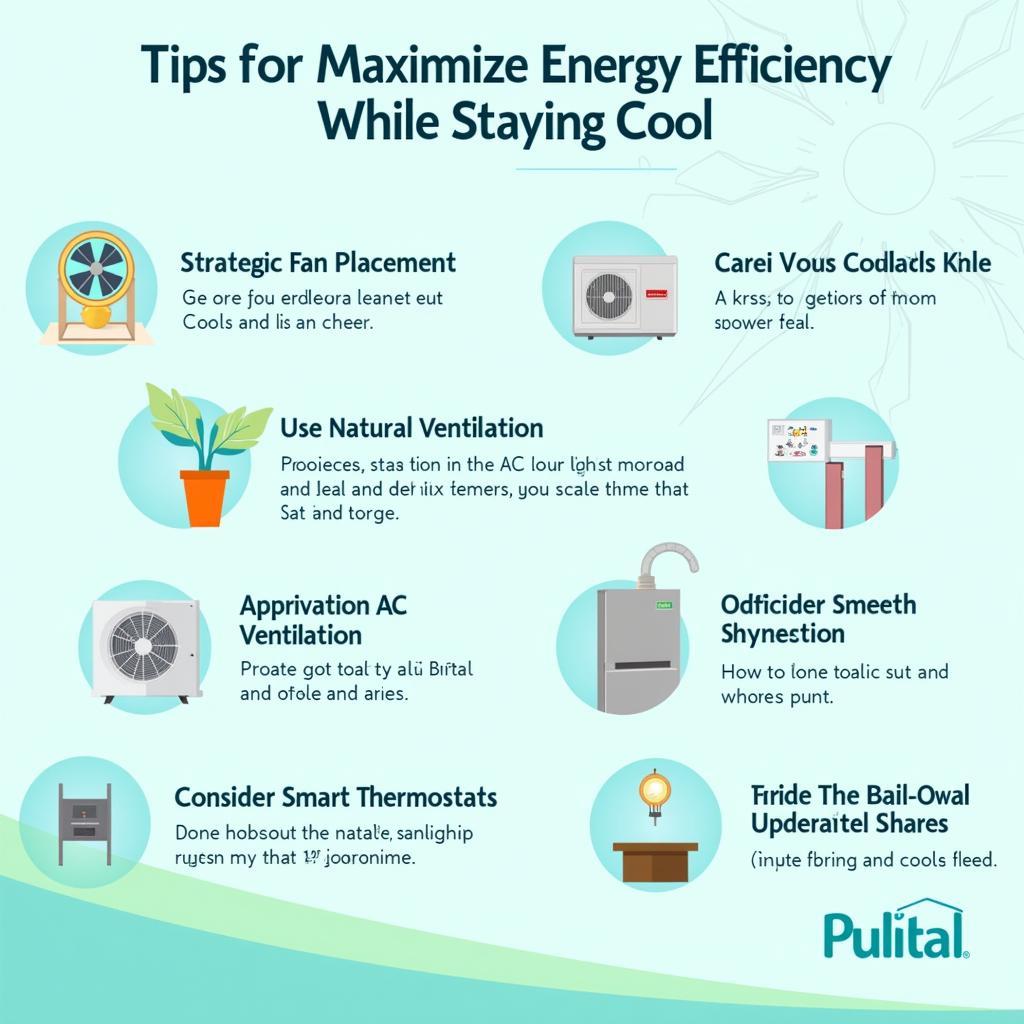When the temperature rises, so does the debate: is it cheaper to crank up the air conditioner or rely on fans to stay cool? Many homeowners find themselves wrestling with this question, especially as energy costs fluctuate. This article dives into a head-to-head comparison of Fan Vs Air Conditioner Electricity Usage, helping you make informed decisions to beat the heat without breaking the bank.
Understanding the Basics: Fans vs. AC Units
Before we compare their electricity usage, let’s break down how fans and air conditioners work:
- Fans: Fans don’t actually cool the air. Instead, they create a wind-chill effect by circulating air, evaporating moisture on your skin, and making you feel cooler.
- Air Conditioners: AC units, on the other hand, use refrigerants to cool the air by removing heat and humidity. They offer a more powerful and consistent cooling solution.
Fan vs Air Conditioner Electricity Usage: The Numbers Tell the Story
The most significant difference between fans and AC units lies in their energy consumption.
- Fans: A standard ceiling fan consumes a meager 60-80 watts per hour. Smaller fans, like desk or tower fans, use even less electricity.
- Air Conditioners: Air conditioners, however, are energy hogs, consuming anywhere between 600-5000 watts per hour, depending on factors like size, efficiency rating (SEER), and usage patterns.
 Fan vs. AC Electricity Consumption
Fan vs. AC Electricity Consumption
This difference in electricity usage translates into a significant cost disparity. In most cases, running a fan costs just a few cents per hour, while an AC unit can cost upwards of 30 cents or more per hour.
 Fan vs. AC Monthly Cooling Costs
Fan vs. AC Monthly Cooling Costs
Factors Influencing Electricity Usage
While the above figures provide a general idea, several factors influence the actual electricity consumption of both fans and air conditioners:
- Fan Size and Type: Larger fans with higher speeds consume more electricity.
- AC Size and Efficiency: The size of your AC unit should match the size of the room for optimal efficiency. Higher SEER ratings indicate greater energy efficiency.
- Temperature Settings: The greater the difference between the desired indoor temperature and the outdoor temperature, the harder your AC has to work, leading to higher energy consumption.
- Insulation and Ventilation: Well-insulated homes and sealed windows help keep the cool air in, reducing the workload on your AC.
Tips to Optimize Your Cooling Costs
- Strategic Fan Placement: Place fans strategically to create cross-ventilation or to enhance the airflow from your AC unit.
- Utilize Natural Ventilation: Take advantage of cooler evening temperatures by opening windows and creating natural airflow.
- Maintain Your AC Unit: Regularly clean or replace air filters and schedule annual maintenance checks to ensure optimal performance and efficiency.
- Consider Smart Thermostats: Smart thermostats learn your preferences and adjust the temperature accordingly, helping you save energy and money.
- Zone Cooling: Instead of cooling your entire house, focus on cooling the rooms you’re using with fans or smaller AC units.
Expert Insights
According to energy expert Sarah Thompson, “Many homeowners underestimate the power of fans. While they might not replace the need for an AC unit entirely, they can significantly reduce your reliance on it, leading to substantial savings on your energy bills.”
 Tips for Energy-Efficient Cooling
Tips for Energy-Efficient Cooling
Conclusion
The fan vs. air conditioner electricity usage debate has a clear winner in terms of cost-effectiveness: fans. While fans might not provide the same level of cooling power as an AC unit, they offer a significantly cheaper way to stay comfortable during warmer months. By understanding the factors that influence energy consumption and adopting smart cooling strategies, you can strike a balance between comfort and affordability.
FAQs
1. Can fans cool a room?
Fans don’t actually cool the air but circulate it, creating a wind-chill effect that makes you feel cooler.
2. How much can I save by using fans instead of AC?
The potential savings depend on various factors, but fans can cost up to 10 times less to operate than air conditioners.
3. When should I use an air conditioner instead of a fan?
Air conditioners are necessary when fans aren’t enough to maintain a comfortable indoor temperature, especially during extreme heat.
4. What is a good SEER rating for an air conditioner?
Look for an AC unit with a SEER rating of 16 or higher for optimal energy efficiency.
5. How often should I clean my air conditioner filter?
Cleaning or replacing your air filter every 1-3 months, or as recommended by the manufacturer, can improve efficiency.
If you need assistance in choosing the right cooling solution for your needs, please contact our 24/7 customer support team at Phone Number: 0903426737, Email: fansbongda@gmail.com, or visit us at Address: To 9, Khu 6, Phuong Gieng Day, Thanh Pho Ha Long, Gieng Day, Ha Long, Quang Ninh, Vietnam.


